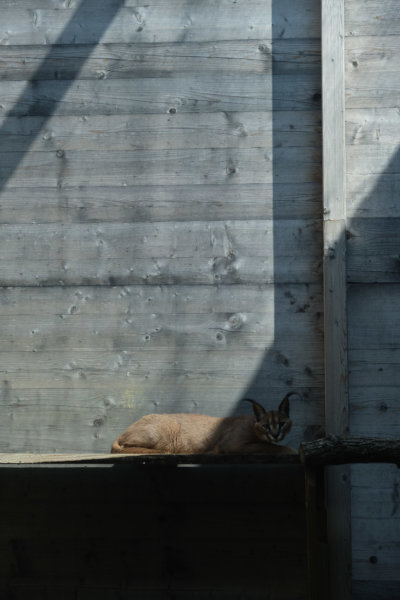Animals are precious. But the extent of their worth can largely differ from one person to the other. For some, this worth has nothing to do with any concern for our ecosystems and it is simply a question of money. This vision gives rise to all kinds of wildlife trafficking – a trade that denies the very essence of an animal’s existence and unveils a whole facet of the absurdity of the human race.
Animal trafficking: in the top 4 of the most lucrative criminal activities
Wildlife trafficking is no small business. It is even an extremely lucrative trade for criminals. Up to 20 billion dollars a year worldwide to be precise, making it the 4th most lucrative criminal activity in the world, after drugs, counterfeit goods and human beings.
This trade has far-reaching consequences, not only for the uprooted animals who endure a life of suffering trapped in cages, cellars or flats, but also for the decline of various species, the balance of our ecosystems and our own health.
Exotic or local wildlife? A choice you can choose not to make
In this underground trade, where living beings are reduced to a pure product, some animals are sought after for their attributes (scales, wood, teeth, bones…). Others for their companionship and exoticism, in particular reptiles, marmosets, emperor tamarins, parrots, Asian otters and, of course, felines. As for more local fauna, it has also become trendy to become the proud owner of lynxes and other felids, turtles, owls and any bird that shines with shimmering plumage. The ultimate? Mixing species to shape a creature just the way you want it to be. The sparrow is thus often crossed with other birds to customize the shades of its feathers, or with canaries to enhance its vocal capacity. Clearly, human nature isn’t easily satisfied…
The role of social networks
According to Interpol, global trafficking is increasing by 5% to 7% per year and is hugely facilitated by social media, which serves both as a marketplace and a platform for advertising. It seems indeed that posting images of a big cuddle with your lion cub or your slow loris is a particularly efficient way to get new likes on Instagram…. almost as much as posting cute kitten videos, which, it might be worth reminding, are fully authorized pets whose acquisition is not subject to up to 3 years imprisonment and a €150,000 fine… a sentence that is certainly still too lenient to discourage smugglers.


The Athénas Centre: the rescue squad of the victims of this illicit trade
What can be done in the face of this senseless trade? Apart from legal action, we can fortunately also rely on some valiant Robin Hoods to take action. The Athénas Centre, which we have been supporting since 2020, dedicates part of its time to the fostering and care of animals that are victims of trafficking once they have been seized by judicial authorities. In 30 years, 800 animals have thus been taken in by the refuge.
What happens to seized animals?
When an animal is rescued from the clutches of its self-declared owner, it is often very complicated, and even life threatening, to return it to its country of origin. Releasing it back into the wild is often not an option: it is almost impossible for it to survive by itself after years in captivity, or in an environment so different to its original habitat. What’s more, there is a risk that this could lead to strong hybridization, which is detrimental to the survival of endemic species.

Ending one’s life within 4 walls: a very sad fate
Facilities like the Athénas Centre are therefore essential for taking in and caring for these animals. On some rare occasions, when a suitable solution is found, they are lucky enough to regain their freedom, as in the case of these two Snowy Owls, who will be able to return to their Arctic tundra if all goes according to plan. Unfortunately, they often end up spending the rest of their lives in the centre, but this time, in good hands… those of Gilles and Lorane, the centre’s managers, who, for the last 15 years, have been taking great care of two lynxes seized in the cellar of a council flat in the Paris region when they were still cubs—just one example among many others.
They need us
Equipment, food, care, transport, setting-up of rehabilitation programs… the overall cost of caring for these animals is tremendous and falls entirely on the Athénas centre, which makes up for the lack of resources from public services. They need support and funding to pursue this mission of general interest.
But they also need awareness to rise. No! Buying, feeding, cuddling and showing off a wild animal on TikTok has nothing to do with loving care. It’s about using and abusing it. Loving nature simply means leaving it untouched and at peace.
